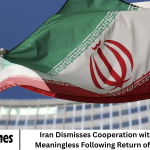British authorities have launched a major investigation into a suspected arson attack at a mosque in England, which they are treating as a possible hate crime. The incident, which occurred in the early hours of the morning, has sent shockwaves through the local Muslim community.
- The Incident: What Happened
- Police Investigation and Response
- Community Reaction and Solidarity
- Historical Context: Rise in Anti-Muslim Hate Crimes
- Government and Law Enforcement Response
- Social Media and Public Discourse
- Impact on the Local Muslim Community
- Religious Leaders Call for Calm and Unity
- Broader Implications: Hate Crimes and Social Cohesion
- The Path Forward: Building Resilience
- Frequently Asked Question
- Conclusion
And reignited concerns about rising Islamophobia and religious intolerance across the United Kingdom. According to police statements, emergency services were called after reports of a fire breaking out at the mosque premises.
This article provides a comprehensive analysis of the incident — from the timeline of events and police investigation to broader implications for social cohesion, community safety, and the fight against hate crimes in the UK.
More Read: Russia Claims to Have Shot Down 251 Ukrainian Drones, Including 61 Over the Black Sea
The Incident: What Happened
The fire was reported just before dawn at a mosque located in a quiet residential area in England. According to local witnesses, smoke was seen rising from the building shortly before the morning prayer (Fajr). Firefighters arrived swiftly and managed to contain the blaze before it spread to nearby homes.
While no one was inside the mosque at the time of the fire, the building sustained severe damage to its entrance and prayer hall. Police cordoned off the area and forensic teams began examining the site for evidence.
Early findings indicated that accelerants may have been used, raising suspicions of deliberate arson. Community members gathered at the scene as news spread, expressing both shock and resilience. “This is not just an attack on our mosque — it’s an attack on our peace and unity,” one worshipper told local media.
Police Investigation and Response
Local police quickly confirmed that they were investigating the incident as a suspected arson and possible hate crime. Detectives are reviewing CCTV footage from nearby properties and public areas to identify any suspicious activity before or after the fire.
Chief Superintendent of the local police department emphasized the seriousness of the case, stating:
“We understand the deep concern this incident will cause within the Muslim community and beyond. While our investigation remains ongoing, initial evidence suggests the fire was started deliberately.
We are treating this as a suspected hate crime and are dedicating all necessary resources to find those responsible.” Police have also appealed for public assistance, urging anyone with information, dashcam footage, or witness accounts to come forward.
In addition to local authorities, the Counter Terrorism Policing North division has been notified to ensure that any potential links to extremist motivations are fully explored.
Community Reaction and Solidarity
The local community’s reaction has been a powerful display of unity and support. Muslim leaders have called for calm and urged people not to respond with anger or fear, but with dialogue and cooperation.
At a community gathering held the evening after the incident, faith representatives from churches, synagogues, and temples joined hands with local imams in a show of interfaith solidarity. The mayor of the city condemned the attack, saying:
“An attack on a place of worship is an attack on the very values that bind us together — tolerance, respect, and freedom of belief.”
Online, many Britons expressed outrage and sympathy using hashtags like #StandWithOurMosque and #UnitedAgainstHate, emphasizing that such acts do not represent the values of the wider public.
However, some community members expressed frustration at what they see as a growing trend of hate crimes against Muslims and a lack of decisive government action.
Historical Context: Rise in Anti-Muslim Hate Crimes
This incident comes amid a worrying increase in hate crimes targeting Muslim communities across the UK. According to official Home Office statistics, religious hate crimes have risen significantly over the past five years, with Muslims being the most frequently targeted group.
Organizations such as Tell MAMA (Measuring Anti-Muslim Attacks) have documented spikes in Islamophobic incidents following international or domestic events that generate anti-Muslim sentiment.
In 2023–2024, there was a 28% rise in hate crime reports linked to religious identity. Mosques and Islamic centers have been subjected to vandalism, graffiti, and verbal abuse, and in some extreme cases, firebomb attacks similar to the latest incident.
Experts suggest that such acts are often fueled by misinformation, online extremism, and divisive political rhetoric that scapegoats minority groups. Dr. Sofia Malik, a sociologist specializing in religious relations, noted:
“When hate speech becomes normalized, it creates an environment in which individuals feel emboldened to act violently. The fire at this mosque is not an isolated incident — it reflects a deeper societal problem.”
Government and Law Enforcement Response
The UK government has repeatedly condemned hate crimes targeting religious groups and pledged to strengthen protections for places of worship. Following the recent attack, a spokesperson for the Home Office reiterated the government’s commitment to community safety:
“We are appalled by reports of the fire at the mosque and stand firmly with the Muslim community. We will ensure that police forces have the support and funding they need to investigate this crime thoroughly and bring those responsible to justice.”
In recent years, the government has implemented initiatives like the Places of Worship Protective Security Funding Scheme, which offers financial support to religious institutions for installing CCTV cameras, alarms, and reinforced doors.
However, Muslim organizations argue that more needs to be done, including enhanced community policing, education programs on tolerance, and stronger online hate speech regulation.
Social Media and Public Discourse
Social media has played a dual role in the aftermath of the attack — as both a tool for solidarity and a platform where misinformation can spread rapidly. Within hours of the fire, photos and videos from the scene circulated widely online.
While many posts expressed empathy, some users shared unverified claims about the cause of the fire, prompting authorities to urge the public to avoid speculation. Online communities rallied around the mosque, with crowdfunding campaigns launched to help rebuild the damaged structure.
The response underscored the positive side of digital engagement — one that fosters collective action in the face of hate.
Impact on the Local Muslim Community
The emotional toll of the attack has been profound. For many Muslims in the area, the mosque is not only a place of prayer but also a community hub for education, charity, and cultural exchange.
One member of the congregation shared:
“We teach our children peace and respect here. To see this place damaged like this breaks our hearts. But we won’t let fear divide us.” Parents expressed concern for the safety of their children attending Islamic schools or youth programs nearby.
Local authorities have since increased patrols around religious sites to reassure residents and prevent further incidents. Counseling services and interfaith workshops are also being organized to help the community heal from the trauma.
Religious Leaders Call for Calm and Unity
Faith leaders across the country have condemned the attack and called for peace. The Muslim Council of Britain (MCB) described the fire as “a cowardly act of hate” and urged authorities to treat the matter with the utmost seriousness.
Christian, Sikh, Hindu, and Jewish leaders also issued joint statements emphasizing unity and mutual respect among communities. The Archbishop of Canterbury tweeted:
“Our mosques are sacred spaces of prayer and peace. Every faith community stands together today against hate and violence.” Such interfaith cooperation has been crucial in diffusing tensions and demonstrating that Britain’s multicultural identity remains strong despite such challenges.
Broader Implications: Hate Crimes and Social Cohesion
The suspected arson attack raises pressing questions about the state of social cohesion and tolerance in the UK. Hate crimes, particularly those targeting religious minorities, can have ripple effects that extend beyond the immediate victims.
Sociologists warn that repeated attacks on minority groups erode trust between communities and foster an atmosphere of fear. Young Muslims, in particular, may feel alienated or unwelcome, which in turn undermines efforts toward inclusion and integration.
Community safety experts stress that effective countermeasures require more than policing — they require education, dialogue, and proactive engagement at all levels of society.
The Path Forward: Building Resilience
Despite the devastation caused by the fire, community leaders are determined to rebuild stronger than ever. Fundraising efforts for the restoration of the mosque have already begun, with contributions pouring in from across the UK.
Volunteers have offered labor, materials, and moral support, demonstrating that acts of hate can be met with even greater acts of compassion. Local schools are organizing “unity days” to promote understanding of different faiths and cultures, while youth groups are working together on interfaith projects.
Such efforts reflect a wider movement within British society — one that seeks to replace prejudice with partnership, and division with dialogue.
Frequently Asked Question
What exactly happened at the mosque?
A fire broke out at a mosque in England during the early hours of the morning. No injuries were reported, but the building sustained heavy damage. Police suspect the fire was started deliberately and are investigating it as a potential hate crime.
Has anyone been arrested in connection with the incident?
As of now, no arrests have been made. Authorities are reviewing CCTV footage, collecting forensic evidence, and appealing to the public for information that could help identify suspects.
Why is this being treated as a hate crime?
The investigation has found signs that the fire was deliberate, and given the location — a place of worship — police believe it may have been motivated by religious hatred or Islamophobia.
How has the community responded?
The local community, including people of all faiths, has rallied around the mosque, offering support, donations, and solidarity. Interfaith leaders have also condemned the attack and called for unity and peace.
What is the UK government doing about rising hate crimes?
The UK government has introduced measures such as the Places of Worship Protective Security Fund to help religious institutions improve safety. It also works with police and community groups to monitor and combat hate crimes.
Are hate crimes against Muslims increasing in the UK?
Yes. Data from the Home Office shows that anti-Muslim hate crimes have risen significantly over the past few years, making Muslims the most targeted religious group in the UK.
What can communities do to prevent such incidents?
Experts recommend fostering interfaith dialogue, promoting education about diversity, reporting hate crimes promptly, and supporting initiatives that bring different communities together. Unity, awareness, and cooperation are key to preventing hate-motivated violence.
Conclusion
The suspected arson attack on an English mosque serves as a grim reminder that religious intolerance remains a threat to peace and harmony. However, the unified response from law enforcement, government, and citizens shows that the UK continues to stand firmly against hate in all its forms.
As investigations continue, the hope is that justice will be served swiftly — and that the tragedy will serve as a catalyst for deeper understanding, empathy, and solidarity among all faith communities.














